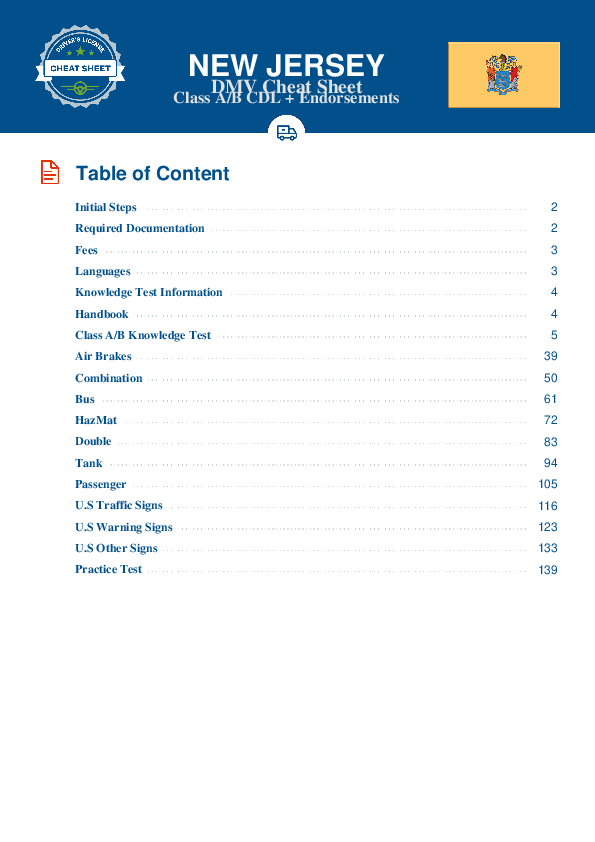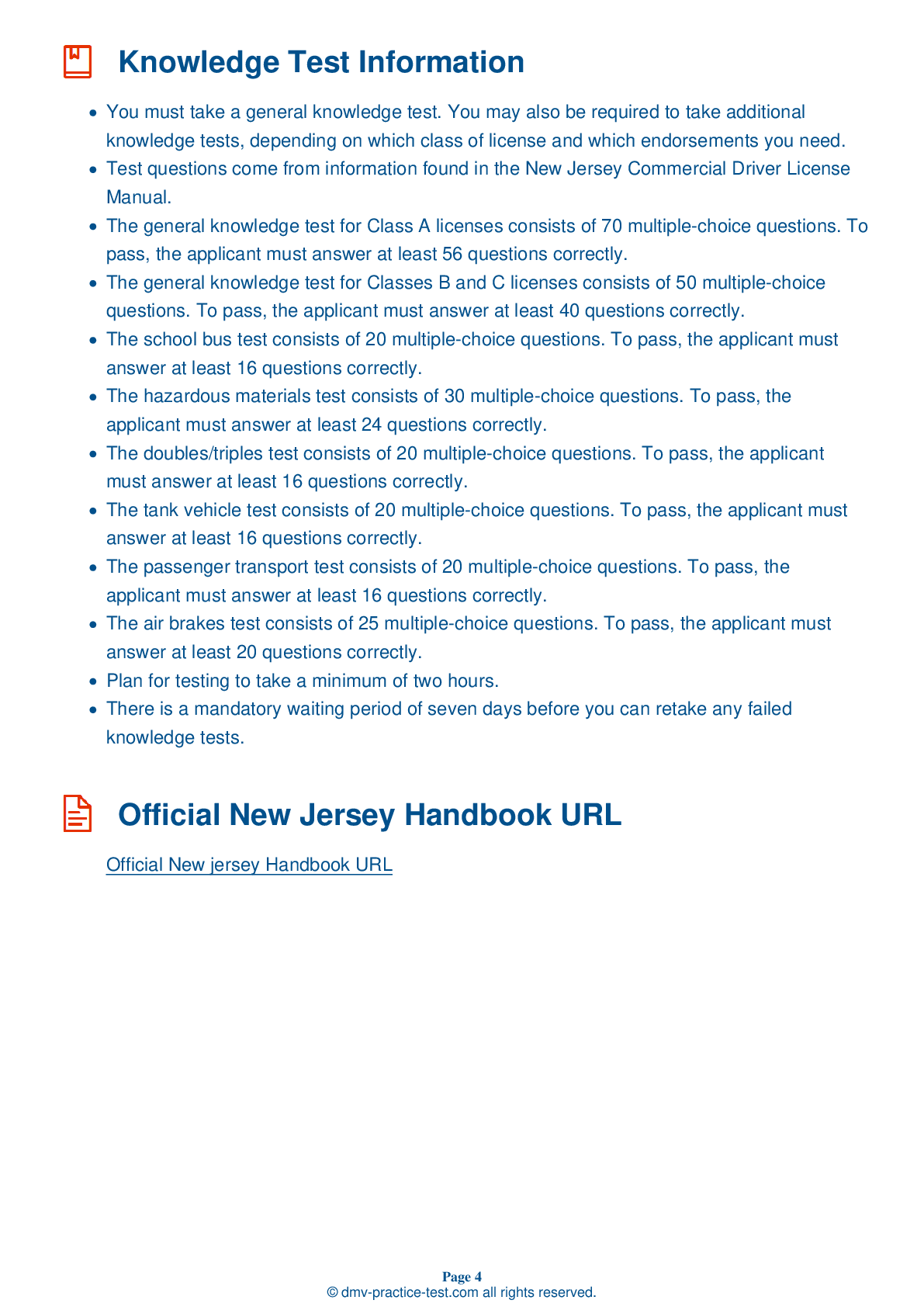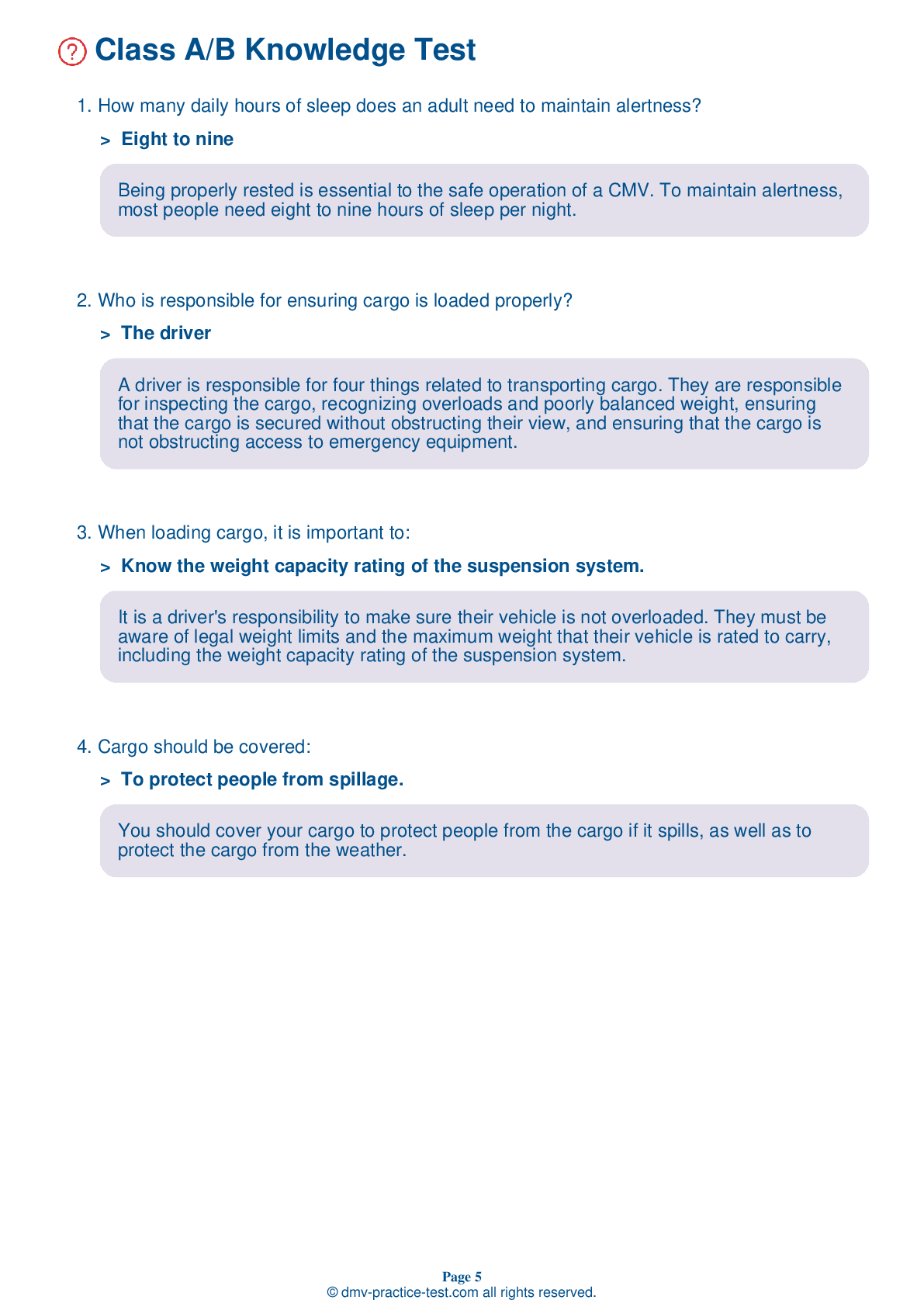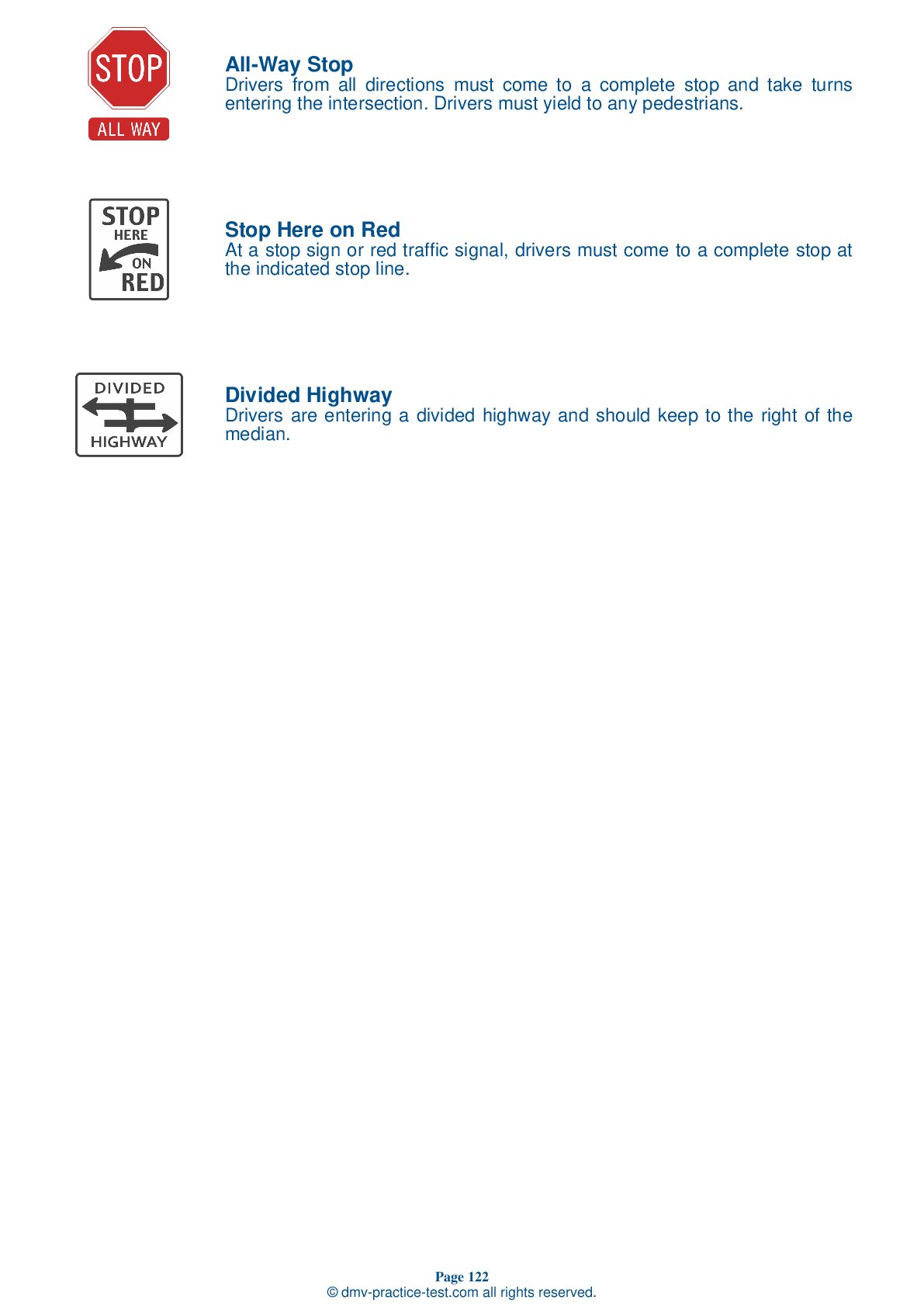Air Brakes Endorsement Test | New Jersey 2026 #2
Train for FREE online with our New Jersey CDL air brake test. The official exam test consists of several obligatory parts, with all of them checking your knowledge of different blocks of road rules. If you need to obtain a NJ Class A/Class B driver license in 2026, practice as much as possible. Free sample tests published on our website will help you check and improve your knowledge and boost your grades. Please bear in mind that the requirements for CDL may vary from state to state.
1 . Before driving a vehicle with air brakes, you should ensure that the spring brakes come on automatically when:
Before driving a vehicle with air brakes, you should ensure that the spring brakes come on automatically when air tank pressure falls to a level between 20 and 45 psi. You can do this by chocking the wheels and releasing air from the braking system by stepping on and off the brake pedal. Once the pressure drops to an unsafe level, the parking brake valve should pop out and spring brakes should come on.
2 . Emergency brakes:
All trucks, truck tractors, and buses must be equipped with emergency brakes and parking brakes. These brakes must be held by mechanical force.
3 . Truck tractors with air brakes that were built on or after March 1, 1997 are equipped with:
Truck tractors with air brakes that were manufactured on or after March 1, 1997 are required to be equipped with Anti-Lock Braking Systems (ABS). ABS is required in any other type of vehicle with air brakes that was manufactured on or after March 1, 1998.
4 . Water and compressor oil are usually found in the compressed air within an air brake system. Water and compressor oil:
Compressed air in an air brake system usually contains a certain amount of water and compressor oil. The water and oil can damage the brakes if left to accumulate in the system. Manually operated air tank drains must be opened daily to remove this build-up.
5 . What happens if brakes become too hot?
If brakes are overused, they may overheat and stop working. This is referred to as brake fade.
6 . Some air brake systems use alcohol:
Some air brake systems contain an alcohol evaporator. This device introduces alcohol into the braking system to inhibit the formation of ice.
See the exact questions that will be on the 2026 New Jersey DMV exam.
99.2% of people who use the cheat sheet pass the FIRST TIME
Lillian MCcranie explains how our CDL study guide was helpful in passing the exam and recommends it to everyone.
Cameron tells us how he purchased the CDL exam, and found it to be a useful tool which helped him pass the exam and find a job.



